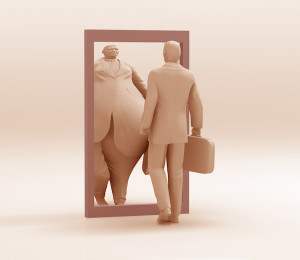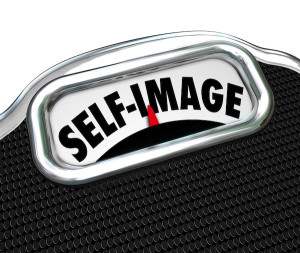Nicki Sindle, LPC-MHSP 615-498-5453 nsindle7@gmail.com
Do You Have an Unhealthy Relationship With Food?
Are you struggling with obsessive, intrusive thoughts and worries about food, exercise, or your body? Are you hounded by a cruel inner voice that grinds at you throughout the day with insults or criticisms of your appearance or what you are eating? It may be that you find it painful to look in the mirror because all you can see are flaws. In an attempt to achieve a vision of perfection, you may avoid eating with others, skip meals, count calories, over-exercise, be consumed with “clean eating”, or purge after eating. Does the thought of gaining weight or eating outside of regimented foods terrify you? Do these worries about your body keep you up at night, filling your days with anxiety and exhaustion?
Perhaps other aspects of your life – from your career to your relationships – feel chaotic and stressful, and rituals, measurements, and behaviors related to disordered eating bring you a sense of control or relief. It may be that one part of you feels a sense of calm and satisfaction when you feel hungry or lose weight, while another part of you wonders if things are getting out of hand. Even if you have become concerned about your long-term health because of worrisome signs – such as heart palpitations, hair loss, or intense fatigue – you might find it frightening to imagine a life without an eating disorder. Perhaps you frequently feel on-edge because you believe that others, including your loved ones, are observing and judging your weight and appearance. When you don’t like who you are and feel ashamed of your interactions with food, other relationships in your life can suffer, leaving you feeling isolated, hopeless, and sad. Do you long to feel “normal” and in control while finding a way to become a healthier, happier you?
If You Are Struggling with an Eating Disorder, You Are Not Alone
According to the National Association of Anorexia Nervosa and Associated Disorders (ANAD), at least 30 million people in the U.S. currently suffer from an eating disorder. And this statistic doesn’t include the many others who struggle with disordered eating without a diagnosis. Eating disorders affect more men and women every year, from all ages, backgrounds, and ethnic groups. The increase is made worse by flawless movie stars and edited Instagram photos, which have created the image of a “perfect” body that no one can truly achieve. We are not meant to be perfect, we are meant to be human.
Eating disorders have no simple cause. It’s a combination of genetics, experiences, and personality that creates the recipe for an eating disorder. Bulimia (overeating followed by self-induced vomiting), Anorexia (obsession with weight loss through not eating), and Binge Eating (extreme overeating for short periods of time) are three of the most well known types of eating disorders, but the complex nature of the condition means that disordered eating can develop in countless ways. These facts and statistics may feel overwhelming and disheartening, but the good news is that, with the help of an experienced and compassionate eating disorder therapist, it is possible to recover and go on to accept yourself, develop a healthy relationship with food, and find relief.
With Eating Disorder Treatment, You Can Take Back Your Life
Eating disorder recovery is possible. In sessions, I can help you break free from that negative inner voice and develop a new, compassionate, and healthy relationship with yourself.
An important part of the healing process is to explore and identify the root source of your condition, regardless of the cause. Without addressing the origin of your eating disorder, it is very difficult to fully recover. For example, many people struggling with disordered eating experienced a trauma in their past that continues to affect their wellbeing and sense of safety today. Sometimes, that trauma can be difficult to recognize. With the help of a therapist, you can pinpoint and resolve the experiences that allowed the eating disorder to manifest.
My approach to therapy for eating disorders is warm and nonjudgmental. And, while sessions involve discussing issues and working together to better understand how your thoughts and experiences impact your behavior and decision-making, I’m also solution-focused. My goal is to help you gain insight into yourself and learn what actions you can take to better cope with and reframe the negative thoughts that reinforce your disordered eating.
Through our sessions, you can learn to live in the present, without feeling anxious, depressed, or scared. Further, you can acquire techniques to develop a positive self-image and feel empowered to tolerate painful feelings and avoid relapse. I know from experience that eating disorders can be managed and overcome with therapy, allowing those struggling with the condition to achieve lasting relief, find happiness, and engage with life.
But, You Still May Have Questions or Concerns…
I don’t want anyone to know I have an eating disorder.
My practice is a completely confidential environment in which we can safely explore your issues. Unless you choose to tell someone or are a minor under age 16, no one will know that you are seeing an eating disorder therapist. And, in sessions, I can help you overcome any shame or fear you feel about your struggle with an eating disorder, while also guiding your recovery from the disorder itself.
My eating disorder is a part of who I am. If I recover, who will I be?
It’s common to feel as though disordered eating defines you. Many people find it difficult to imagine a life without constant thoughts about food or body image and feel apprehensive about recovery. But, you are not your eating disorder, and bulimia counseling, anorexia therapy, and other forms of eating disorder treatment can help realize that you have so much more to offer the world. Recovery can bring increased self-esteem, healthier relationships, and a better sense of direction and hope in your life.
I don’t have the time or money for eating disorder treatment.
Consider the amount of time and energy you spend just trying to hide your eating disorder from the people in your life. Therapy is an investment in yourself and an investment in having more time to do the things you really want to do – things that can make you truly happy.
Start on the Road to Eating Disorder Recovery Today
Reach out to me at
nicki@nickisindlecounseling.com
or 615-498-5453
to set up an initial appointment.




